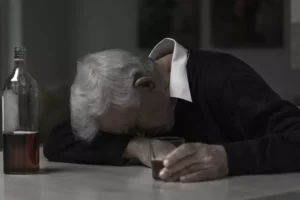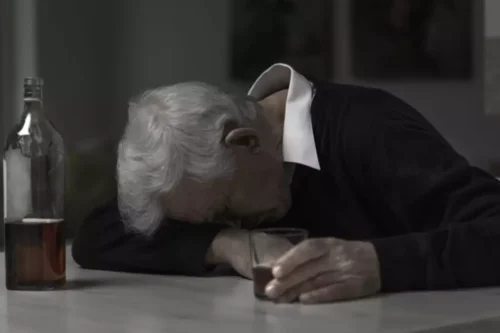Sober living
PTSD and Memory Loss Explained

The best way to combat this is to learn how to prevent PTSD blackouts. On the other hand, you may also be tempted to use alcohol or drugs to reduce the level of tension you’re feeling. In people with PTSD, their response to extreme threat can become “stuck.” This may lead to responding to all stress in survival mode. If you have PTSD, you may be more likely to react to any stress with “full activation.” You may react as if your life or self were threatened. When you pass out or faint, you experience a temporary loss of consciousness. For those supporting loved ones with PTSD anger issues, education, patience, and self-care are essential.
- These characteristics include avoidance, recurring or intrusive thoughts, mood or behavior changes, and physical behavior changes or responses.
- I really am so sorry that you’re going through this, but, there is hope, you can get better.
- I say ineffective because blocking emotional pain does not process what happens.
- At the right time and in the right amounts, cortisol can be extremely helpful.
ADD/ADHD Treatment

The relationship between PTSD and memory is multifaceted and can manifest in various ways. While some individuals with PTSD may experience vivid, intrusive memories of their traumatic experiences, others may struggle with gaps in their memory or difficulty recalling specific details. This apparent contradiction highlights the complex nature of trauma’s impact on the brain and its memory systems. Partners and family members may find themselves walking on eggshells, unsure of what might trigger an angry outburst.
Vicarious Trauma vs. Secondary Trauma: Key Differences Explained
- By Ethan Milner, LMSW The term “Neurodiversity” includes a spectrum of presentations including Autism and ADHD.
- If you are, we can check them and see if you are having some type of interaction going on.
- While the impact of PTSD on memory can be significant, there are various approaches to managing and treating these issues.
- Fits of rage are often seen with post traumatic stress disorder or emotional conditions.
- Symptoms may crop up immediately after the event or surface years later.
- Someone with grief PTSD will require different counseling solutions than someone with combat PTSD.
- For others, avoidance has a literal, physical manifestation, involving the avoidance of any place or situation that could relate to the traumatic event.
This constant state of tension can lead to communication breakdowns, emotional distance, and in some cases, the dissolution of relationships. It’s crucial for both the individual with PTSD and their loved ones to understand that these anger issues are a symptom of the disorder and not a reflection of the person’s true feelings or character. PTSD is a psychiatric disorder that can develop after exposure to a traumatic event, such as combat, sexual assault, natural disasters, or severe accidents. It is characterized by intrusive thoughts, avoidance behaviors, negative alterations in cognition and mood, and changes in arousal and reactivity. Among these symptoms, anger and irritability are particularly prevalent, with studies suggesting that up to 75% of individuals with PTSD experience significant anger-related issues.

Health Categories
- It’s important to distinguish anxiety blackouts from other forms of memory loss.
- Blackouts may accompany other symptoms, which vary depending on the underlying disease, disorder or condition.
- For initial consultations, please provide your phone number and the best time to reach you.
- Others can overcome blackouts and other symptoms with counseling alone.
- Seeking support from healthcare professionals, implementing coping strategies, and building a strong support network can make a significant difference in managing these challenging experiences.
- In conclusion, PTSD blackouts represent a significant challenge for many individuals struggling with the aftermath of trauma.
It encompasses the encoding, storage, and retrieval ptsd alcohol blackout of information, with different types of memory serving various purposes. Short-term memory allows us to hold information temporarily, while long-term memory stores information for extended periods. Within long-term memory, we have declarative memory (conscious recollection of facts and events) and non-declarative memory (unconscious memory, such as skills and habits). In conclusion, PTSD blackouts represent a significant challenge for many individuals struggling with the aftermath of trauma. These episodes of memory loss and dissociation can have profound impacts on daily life, relationships, and overall well-being.
- This apparent contradiction highlights the complex nature of trauma’s impact on the brain and its memory systems.
- Physical blackouts you find yourself on the floor wondering what the hell just happened.
- I had to learn to accept that I had them but choose to not keep them in my life.
- When put into situations of severe stress the body seems to automatically shut down!
- The field of trauma research continues to evolve, offering new insights and treatment approaches that hold promise for the future.
- Post-traumatic stress disorder (PTSD) can arise after you experience a traumatic event.

Treating the symptoms of PTSD can help mitigate memory loss and difficulty concentrating and pave the path toward a healthy, bright future. The role of stress https://ecosoberhouse.com/ and anxiety in memory function cannot be overstated when discussing PTSD-related memory issues. The constant state of hyperarousal and vigilance experienced by many individuals with PTSD can interfere with the brain’s ability to properly encode and store new memories. Cultural competence in mental health care is essential for providing effective support to individuals from diverse backgrounds who are experiencing PTSD blackouts. PTSD blackouts differ from other types of memory loss in several ways. Unlike age-related memory decline or the effects of certain medications, PTSD blackouts are typically episodic and closely tied to traumatic experiences.
Steps to Handle PTSD Blackouts
The blackout happened when everyone was amphetamine addiction treatment asleep already so I can’t ask. That is why frequent visits to your therapist is very important right now. I suggest that until this gets sorted out you should get help with your children. Say for sleeping or anything at all, including herbs, OTC medications?

Like a camera with a faulty shutter, the mind sometimes clicks but fails to capture, leaving behind a haunting void where memories should be. Additionally, people with PTSD may exhibit heightened emotional reactivity. This can result in irritability, angry outbursts, reckless behavior, and being easily startled.

